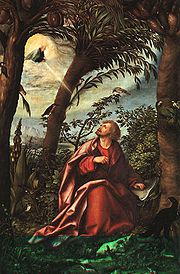
Very interesting essay, Bob, and a good corrective to my dismissal of Clayton’s invoking of Calvin. I am struck by the second last sentence, and the core idea in the essay of a creative tension of opposites, very much along the lines of the closing passage in chapter 2 of The Secular Scripture:
The combination of the doctrine of the sovereign God with the doctrine of election gives us a working basis to establish the permanence and transcendence of form, on the one hand, and the reality of organic experience, on the other.
In other words: a transcendent revelation in an evolving or dialectical relationship with the reality of human creativity, the sacred scripture and the secular scripture — the two revelations, and the dialectic of two aspects of the same thing. It also reminds me, in the emphasis Frye places on the inescapable fact of cultural history, of a quotation he uses from someone (I forget who) to the effect that: “English literature will always have been Protestant.”
However, what is missing in Calvin is a visionary element, whether sacred or secular. Here is what Frye has to say about Calvin in 1985 (an idea he recurs to elsewhere) when he was well past his majority, to say the least:
The unwillingness of so many religious temperaments to try to grasp the reality of a revelation in any but doctrinal terms recurs in a number of religious communities. . . . The Reformation was founded on the doctrine of justification through faith, but conceiving faith as something to be expressed in the language of creed or thesis minimized the visionary element in it. We notice that Calvin could make very little of the Book of Revelation in his Biblical commentaries; in spite of its dense texture of allusions to the Old Testament, the quality of the language eluded him.(Northrop Frye on Religion, 352)

Joe, The quotation you are referring to is from John Henry Newman’s “English Catholic Literature,” one of the essays from the second part of _The Idea of a University_. (These essays on “University Subjects” are not very well known; they are not included in the recent Yale University Press edition of _The Idea_. ) Newman wrote “I repeat, then, whatever we be able or unable to effect in the great problem which lies before us, any how we cannot undo the past. English Literature will ever _have been_ Protestant.